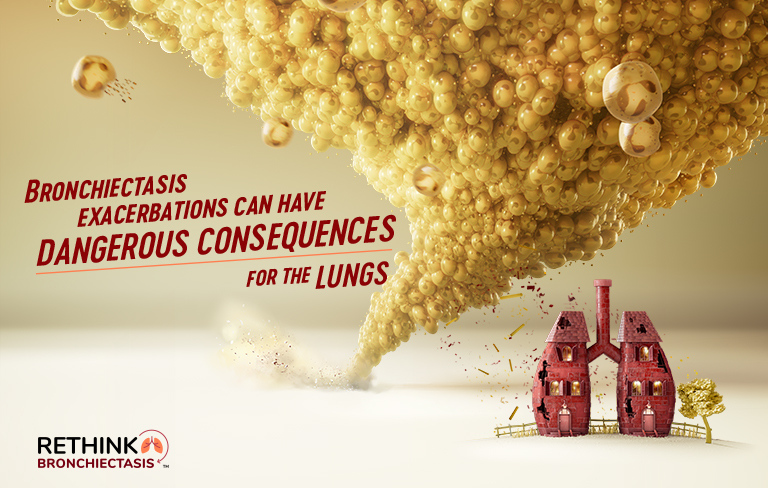Join Insmed for a presentation about bronchiectasis exacerbations and their management. This session, taking place at 11:30 a.m. PT, Sunday, May 19 in Innovation Theater 5, features bronchiectasis experts Colin Swenson, MD, and George M Solomon, MD. Lunch will be provided.
While bronchiectasis is often identified in patients with other lung diseases like COPD and asthma, it is separate chronic lung disease usually marked by permanent, abnormal dilation and persistent
inflammation of the airways. PaQents with bronchiectasis ocen suffer from periods of worsening
symptoms, or exacerbations, which can damage the lungs and contribute to the burden of the disease, affecting health-related quality of life.
In scientific literature, bronchiectasis has been characterized as a vicious cycle or vortex consisting of 4 primary drivers: chronic airway inflammation, impaired mucociliary clearance, lung destruction, and chronic airway infection. The role of inflammation in driving this condition continues to be a subject of research, with increasing evidence implicating neutrophilic inflammation in perpetuating the vicious vortex and contributing to recurrent damaging bronchiectasis exacerbations.
During this presentation, participants will explore the burdens and underlying causes of bronchiectasis exacerbations, with a particular focus on current management strategies. This session will also delve into the key drivers of bronchiectasis, highlighting the critical role of inflammation in disease progression. Colin Swenson, MD, and George M Solomon, MD, will lead participants on a journey into the functions of the neutrophil, emphasizing how the cellular processes intended to defend against infection can, instead, be destructive during bronchiectasis. They will review the data regarding the inflammatory process associated with bronchiectasis exacerbations.
When visiting the Exhibit Hall, join Insmed at Booth #2343 to learn more about bronchiectasis and
bronchiectasis exacerbations. We are offering a variety of resources and events this year, including an immersive exhibit featuring bronchiectasis research, a 3D lung model, interactive explorations of the science, and more.
NP-BE-US-00443

